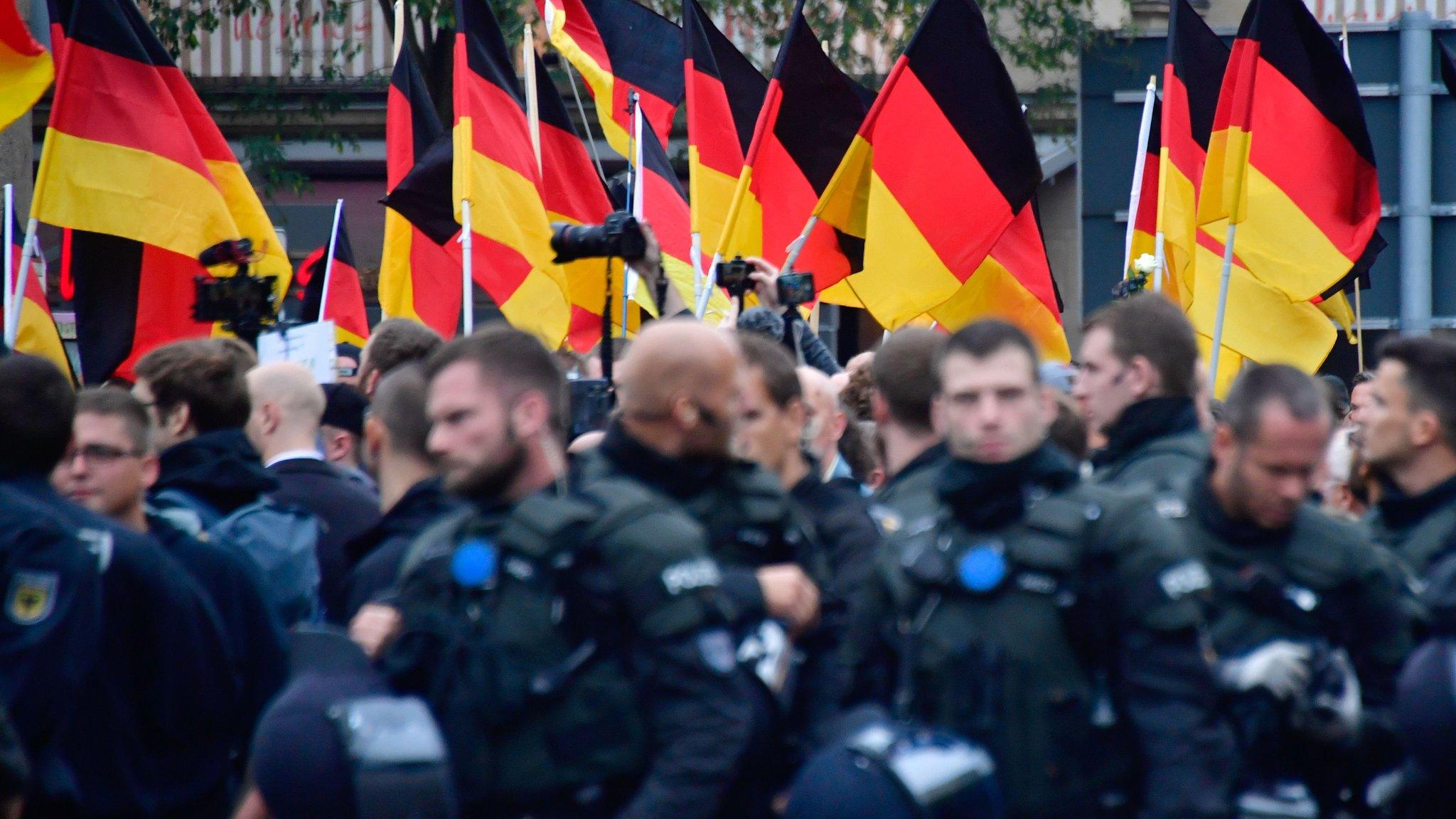Gruppe S: German far-right group on trial for 'terror plot'
- Published
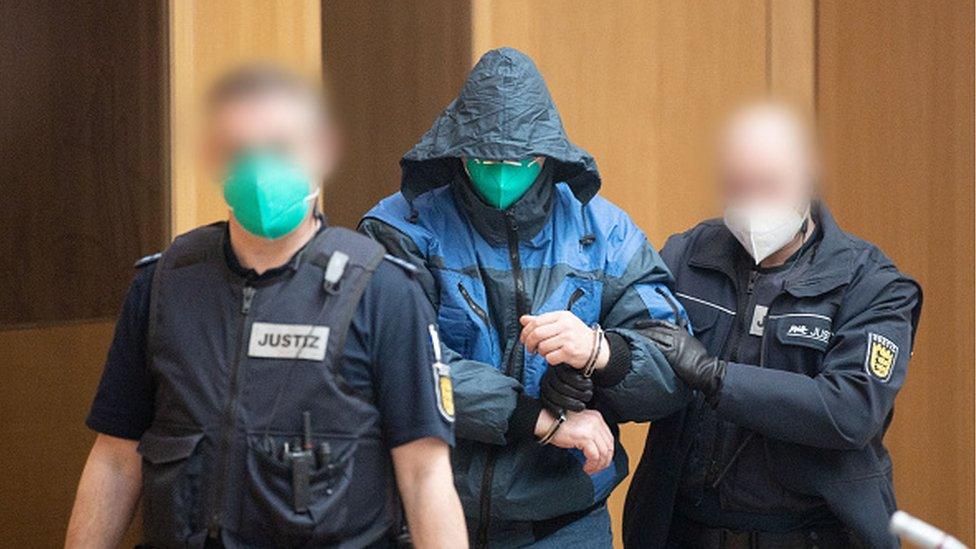
The trial began under heavy security
The trial of 11 suspected members of a far-right "terror" group has begun in the German city of Stuttgart.
The suspects, aged between 32 and 61, were arrested in February last year.
Prosecutors say the 11 men - all Germans - were members of Gruppe S (Group S), which planned attacks on migrants, Muslims and politicians, with the aim of sparking a civil war.
A twelfth man, a former police officer, is accused of offering material support to the group. He is also on trial.
One of the group is still at large and is being tried in absentia.
What are the men accused of?
The men in Gruppe S intended to "shake and ultimately topple the state and social order" in Germany, the indictment says.
Werner S, the group's alleged ringleader, organised an meeting with seven other founding members at a barbecue area in the state of Baden-Württemberg in September 2019.
Over the next few months others joined, keeping in touch by phone and internet chat.
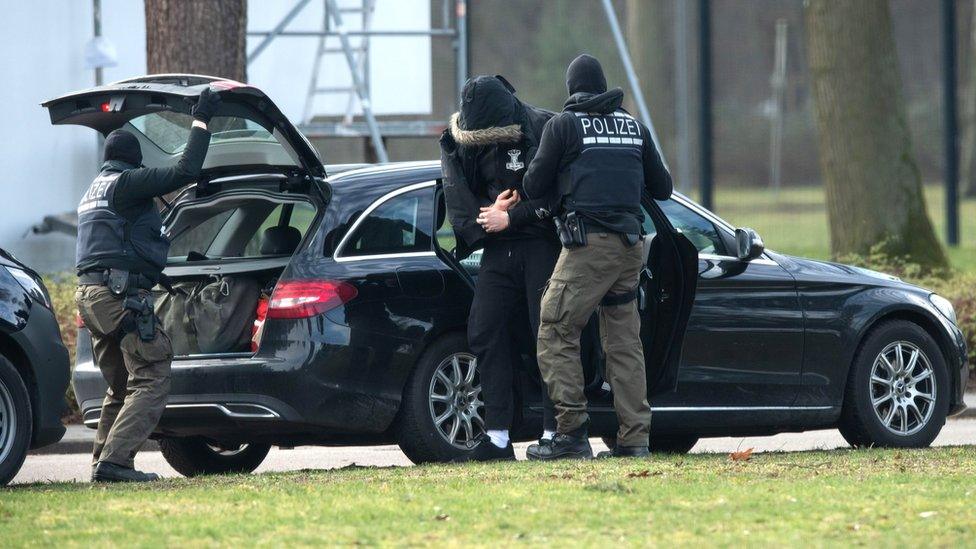
The suspects were arrested in February 2020
According to investigation files seen by German public broadcaster ZDF and the Stuttgarter Nachrichten newspaper, Werner S planned to acquire a Kalashnikov assault rifle with 2,000 rounds of ammunition, an Uzi submachine gun and hand grenades. The group already had 27 unlicensed weapons, mostly pistols, it is alleged.
"If the accused had been able to carry out their planned acts of terror, we would have had a totally brutal and massive killing machine running here," said Ralf Michelfelder, chief criminal investigator for the state of Baden-Württemberg, ahead of the trial.
German media report that the authorities were alerted to the group's activities in autumn 2019 by an informant, who is now the chief witness, under close police protection. In February 2020 police arrested 13 men from five German states. One later died in pre-trial detention.
Most of the group's members also belonged to other far-right groups, including the Bruderschaft Deutschland (German Brotherhood), German broadcaster ARD reports.
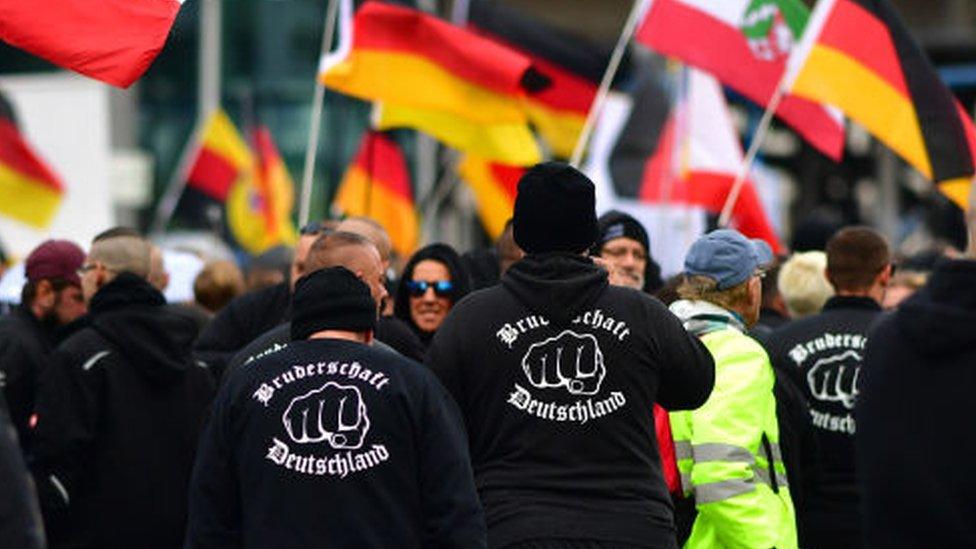
Members of far-right Bruderschaft Deutschland in Berlin (Oct 2019)
Thorsten W, who is accused of supporting the group, worked for the police in the state of North Rhine-Westphalia and allegedly offered €5,000 ($6,000; £4,300) to buy weapons for the attacks.
Far-right attacks in Germany
February 2020: A racist gunman kills nine people of migrant background in two shisha bars in the city of Hanau. Police later find the gunman and his mother shot dead in his flat
October 2019: A far-right gunman attempts to storm a synagogue in the eastern city of Halle on the Jewish festival of Yom Kippur. After shooting at the locked front door he kills a female passer-by and a man at a kebab shop. The attacker is later sentenced to life in prison
June 2019: Walter Lübcke, a pro-migrant politician, is shot in the head at close range in his garden, in Germany's first far-right political assassination since World War Two. The gunman, who filmed the attack, is jailed for life
September 2018: Six suspects arrested after attacking and injuring foreign residents in the eastern city of Chemnitz. Prosecutors say the men, who founded a far-right group named Revolution Chemnitz, were planning deadly attacks on foreigners, politicians and senior civil servants
July 2018: Beate Zschäpe is jailed for life for 10 racially-motivated murders spread over seven years. She and two other neo-Nazis had formed a terrorist cell called the National Socialist Underground (NSU)
July 2016: An 18-year-old shoots dead nine people at a shopping mall in Munich before killing himself. Bavarian authorities later classify the attack as "politically motivated", saying the teen had "radical right-wing and racist views"

You may also be interested in:
Christiane says she was targeted by neo-Nazis at her home (from 2019)
Related topics
- Published3 March 2021
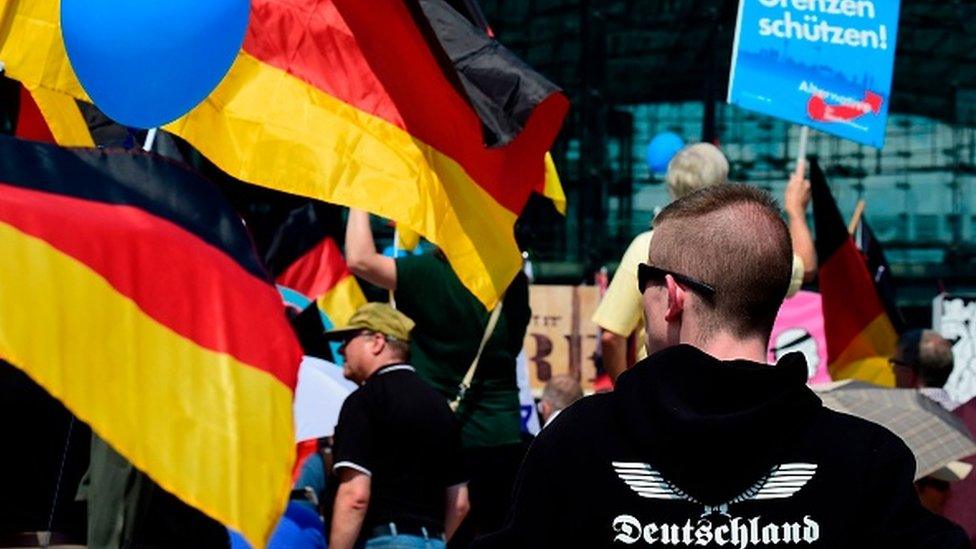
- Published28 January 2021
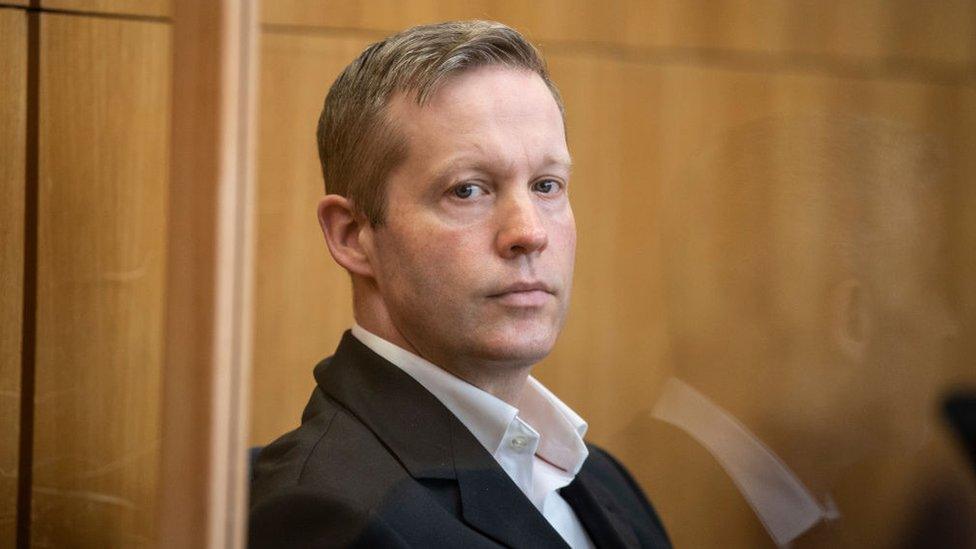
- Published21 December 2020
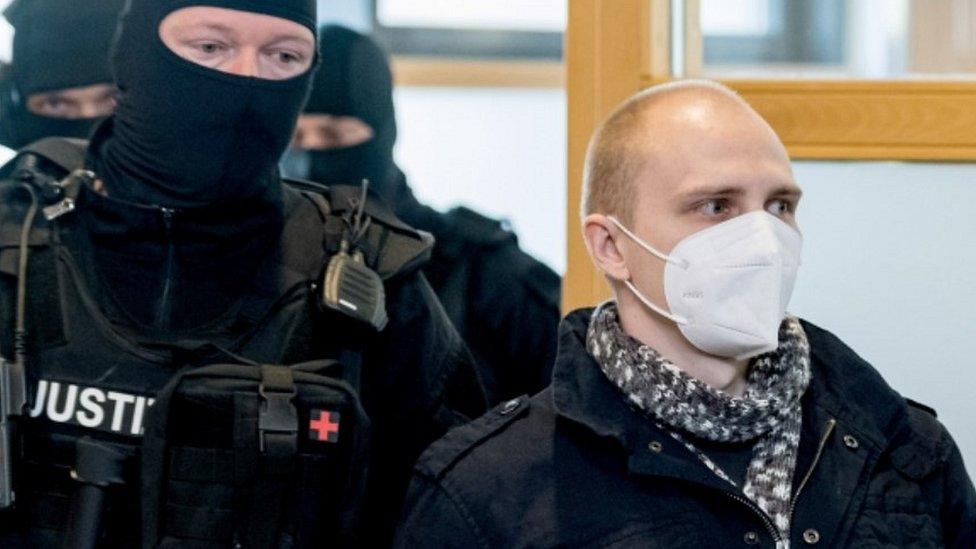
- Published1 October 2018
